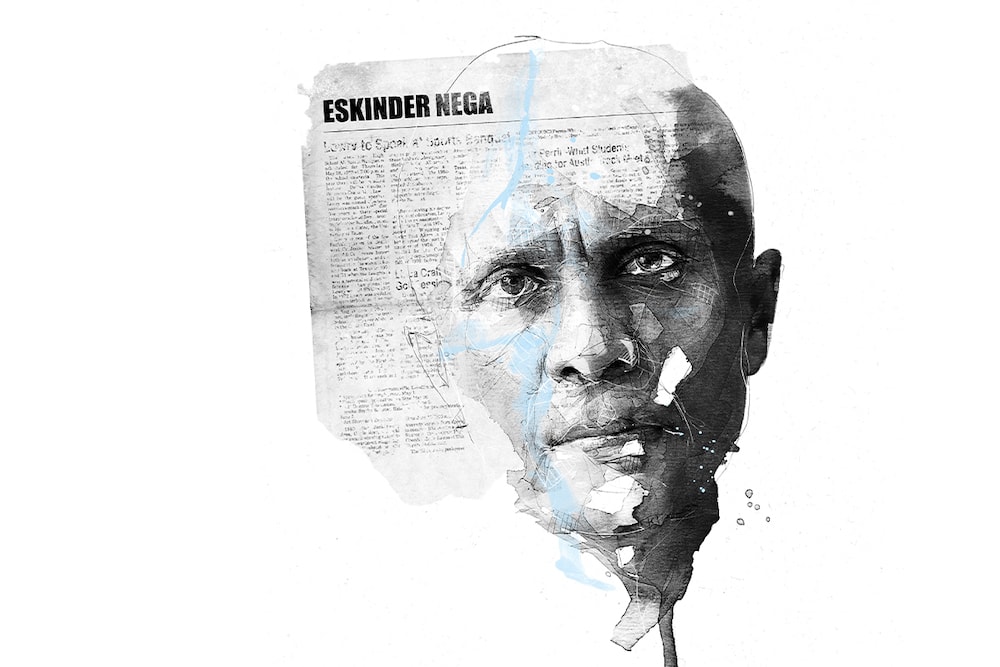Journalist Reeyot Alemu wrote articles that challenged government policy before she was arrested and sentenced to fourteen years in prison on "terrorism" charges.
In an interview with CBS News in July 2015, journalist Reeyot Alemu reflected on the work that landed her in prison: What can I do? Just to be silent, or contribute something? I choose to contribute something and I'm willing to pay the price. This is my decision.
Anti-terror laws are commonly misused by authoritarian regimes to, on the one hand, silence their critics and, on the other, to escape international approbation by attempting to legitimise their actions under the cloak of fighting terrorism. Ethiopia is one such country where journalists have been wrongly branded terrorists and spent years in prison. Among them is Reeyot Alemu.
Arrested at the high school where she was teaching in June 2011, Alemu was first taken for interrogation at the Maekelawi police detention centre in Addis Ababa, infamous for its dire conditions including reports of beatings and prisoners suspended from ceilings. There she was held until her sentencing to 14 years in prison in January 2012 alongside four others, accused planning ‘terrorist acts’, being members of a terrorist organisation and ‘money laundering’. Amnesty International named them as prisoners of conscience convicted on evidence based mainly on the articles they had published and their comments on email distribution lists on plans for peaceful protests. This could not be seen as proof of connection with terrorism. Human Rights Watch agreed, saying that there were serious trial irregularities, including that the five were not allowed to meet with their lawyers in their three-month pre-trial detention and the court refused to hear their complaints of torture and ill-treatment.
The Committee to Protect Journalists cited Ethiopia as the fourth most censored country in the world in 2014, and ‘Africa’s worst jailer of journalists’. Its anti-terror legislation has been denounced by the United Nations which issued a strongly worded statement demanding that the anti-terror law stop being used to curb free expression. Alemu wrote that the purpose of the law “is to enable the current regime to comfortably rule without any criticism, opposition or competition”.
The flimsy evidence against Alemu is a prime example of the misuse of this law. In August 2012, an appeal court dropped charges against her relating to money received from abroad, acknowledging that these had been payments for articles she had written for the US-based Ethiopian Review, and that the charges of conspiring to organise terrorist attacks were unfounded. However it upheld the accusation that her writings could have promoted terrorism. Alemu’s sentence was reduced to five years.
There was no proof offered that Alemu’s writings celebrated terrorism. Instead, her articles challenging government policies published in the weekly Feteh (Justice) newspaper may be the real reason she was being targeted. For example, just a few days before her arrest she had written about the controversial Abay (Nile) Dam project, questioning how it was being financed. In the months before her arrest she suffered a harassment campaign in the pro-government media and threatening calls.
Alemu was unexpectedly released in July 2015 along with several others held under anti-terror laws, just days before US President Obama was due to visit Ethiopia. For most of her four years in prison, Alemu was held in the notorious Kality Prison, where she was denied adequate care after the removal of a tumour from her breast, and essential treatment for her other health problems.
Alemu was honoured with the UNESCO-Guillermo Cano World Press Freedom Prize in 2013. In 2016, Alemu attended a ceremony where she was able to collect her International Women’s Media Foundation Courage in Journalism Award of 2012 in person. Alemu is an English graduate who took up journalism in 2009 alongside teaching. She wrote for the Awramba Times, then for Feteh. In 2010, she set up her own publishing house and monthly magazine, Change, both since closed down.
Upon her release, Alemu told Voice of America: “I am sure I will continue my writings because it’s my job, and also it’s my passion to write, and also I want to serve my country. I want to make Ethiopia a democratic country. It is my responsibility as a citizen and as a journalist also”.
Alemu is now based in Virginia in the United States reporting for Mengizem Media – an outlet that focuses on Ethiopian political, economic and social issues. In a recent interview with VOA, she reiterated her commitment to fighting “for independent media and explains the difference between working in Ethiopia versus now here in the United States.”
Illustration by Florian Nicolle

